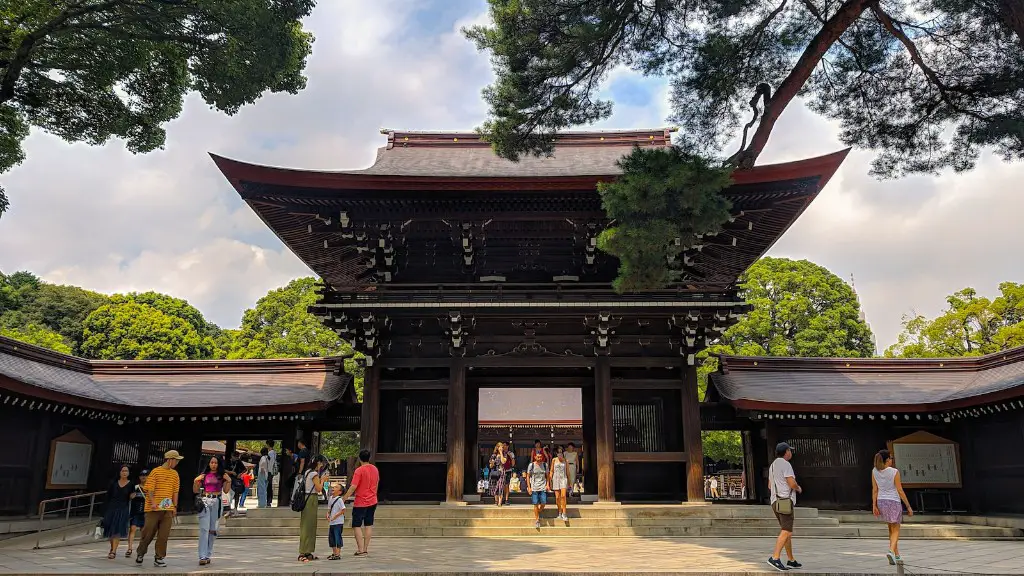What Is Shabbat Judaism?
In the Jewish tradition, Shabbat is the holiest day of the week. It is the day when Jews cease their labors and spend the day in prayer, reflection, and study. The word “Shabbat” is derived from the Hebrew word for “Sabbath,” which can mean a day of rest and a day of spiritual renewal. The Jewish tradition teaches that Shabbat should be a time of joy and gratitude that honors God and celebrates creation.
In addition to its spiritual significance, eating, drinking, and celebrating with family and friends are all important parts of Shabbat observance. Jewish families will gather each week for a festive Shabbat meal. Typically, the meal is opened with a blessing and includes candles that are lit to usher in the Hebrew word for “Sabbath Peace.”
Rabbi Aryeh Winer, an expert in Jewish education and observance, explains that Shabbat is an opportunity for Jews to draw closer to God and to develop “inner-spiritual knowledge.” By taking a break from the hustle and bustle of everyday life, Jews can step back and develop a deeper spiritual connection with themselves, the world, and God.
Observance of Shabbat encourages mindfulness and gratitude and is usually accompanied by specific rituals.Traditional activities on Shabbat include reading of the Torah and/or prayer, lighting of candles, and special foods. These provide Jews with an opportunityto deliver thanks, praise, and joy to God and will ensure that Shabbat is a day of peace and renewal.
When Shabbat is observed properly, Jews can experience a sense of harmony, peace, and spiritual joy. Keeping Shabbat allows Jews to find a deeper spiritual understanding of themselves and the world. Rabbi Marc Rosenstein, a scholar of classical rabbinic literature and interpretation, claims that, “Only through taking the time to think, reflect, and come together as community can individuals gain a deeper knowledge and understanding of who they are and what they believe.”
The Origin of Shabbat
According to Jewish tradition, the origins of Shabbat can be traced to the six days of Creation in the Bible. God worked for six days, and then took a day of rest on the seventh day, making it the first Shabbat. Jews experience this cycle of creation and rest every week by connecting with their own creative and spiritual gifts.
As a result, Jews have a long and rich history of observing Shabbat. The additional rituals associated with Shabbat have developed and evolved over time, from lighting candles to reciting blessings, each helping to deepen the spiritual experience.
Today, most Jews follow a set of laws that create a framework for proper observance of Shabbat. These laws outline which activities must be curtailed– things like cooking, sewing, or traveling– and which rituals should be undertaken to ensure a proper Shabbat experience.
For many Jews, the observance of Shabbat has become a hallmark of their religious identity. In fact, Shabbat serves as an important reminder of the sanctity of life and the importance of taking time out of each week to focus on our spiritual journey.
The Significance of Shabbat
For Jews, Shabbat has always been a special day. The Mishnah, an early collection of Jewish law, records how special the Shabbat day was in ancient Jewish life. Even before the rabbinical period, the Jewish people had a deep sense of reverence for the day, with prohibitions against work and other activities.
Today, Shabbat continues to represent a powerful reminder of the Jewish heritage and of the holiness of everyday life. By ceasing activities and focusing on matters of the spirit, Jews are reminded of the importance of stopping from time to time to reflect on their lives and to appreciate the moments they are living.
Furthermore, Shabbat helps to provide a respite from the hecticness of everyday life. It offers an opportunity to step away from the stresses and anxieties of the day-to-day and to focus instead on matters of the spirit. It is a time for reflection and contemplation and for connecting with one’s inner-spiritual self.
Finally, Shabbat is a time for celebration. On Shabbat, Jews are encouraged to have joy and to be grateful for all that they have been given by God. And, through the festive meals and activities, Jews are reminded of the importance of family and community. The gathering of family and friends for the weekly Shabbat meal creates a sense of connectedness, which reminds Jews of the importance of relationships and community.
Modern Observance of Shabbat
The traditional observance of Shabbat continues to influence modern Jewish life. Many Jews observe a set of rules when it comes to the Shabbat meal, such as not touching fire or lighting lamps during the meal. Other elements of Shabbat observance, such as the recitation of blessings, have also become a part of modern Jewish life.
Additionally, many Jews observe the In addition to local and synagogue-based observances, there are also networked programs and initiatives that bring Jews together to observe Shabbat. These programs often include dinner special commands related to Shabbat, including the prohibition from engaging in the 39 prohibited activities that are prohibited on the Sabbath. The 39 activities are divided into four categories, which prevent work-related activities, destructive activities, creating a new entity, and exchanging items.Together, these rules provide a structure that helps to ensure that Shabbat is a day of rest and spiritual connection.
For many Jews, the observance of Shabbat has become a way to embrace traditional values, celebrate heritage, and build community. By taking a day off from the hustle and bustle of everyday life, Jews can step back and reconnect with their spiritual selves, their families, and their communities.
Contemporary Perspectives on Shabbat
Today, contemporary Jews are grappling with the question of how best to observe Shabbat in a modern, pluralistic world. This leads to a range of perspectives, from traditional interpretations to creative innovations. One example is the work of Rabbi Brad Artsons, who has championed a more modern interpretation of Shabbat that incorporates elements of arts and culture. Artsons argues that there is no strict set of rules for Shabbat observance, and that there is room for creativity and innovation within the parameters of the traditional Shabbat guidelines.
Furthermore, there are a range of online initiatives, such as the Shabbat Project, that make it easier to observe Shabbat, no matter where one lives. By making it easier to observe, these projects encourage Jews around the world to reclaim the timeless values of Shabbat and re-invigorate their own Shabbat practice.
In the end, Shabbat provides Jews with an opportunity to remember their religious heritage and to connect with their spiritual selves. The Shabbat observance encourages mindfulness and gratitude and offers an escape from the hustle and bustle of everyday life. By observing Shabbat in their own creative and meaningful ways, contemporary Jews can continue to deepen their connection with the spiritual world and with one another.
Reimagining Rituals on Shabbat
In recent years, there has been a surge in creative reimagining of ritual practices on Shabbat. For example, the Havdalah ritual, which marks the end of Shabbat, has seen a resurgence in popularity among many young Jews who have embraced the ritual as a way to celebrate their culture and re-connect with their heritage.
In addition, some people are reclaiming or creating new rituals for the Shabbat period that re-focus on the spiritual aspects of the day. These rituals can include meditation, study, and reflection, or even activities such as walking in nature or creating art. For many of these people, these activities are a way to strengthen their connection to the spiritual world and to find renewed purpose in their lives.
Finally, the reimagining of the Shabbat rituals provides an opportunity for Jews of all backgrounds and denominations to redefine and re-energize their observance. Through creative reimagination, Jews can create their own meaningful rituals that speak to their values and their beliefs, and find fresh ways to re-inspire and reconnect with their tradition.
The Significance of Shabbat Today
As we confront the modern challenges, Shabbat provides a time-honored framework for finding peace, purpose, and spiritual connection. Shabbat can provide an opportunity to stop, take a breath, and reconnect with our respective faiths and traditions.
Regardless of denomination or observance level, Shabbat can provide a meaningful way to develop a spiritual practice and to draw closer to the divine. And, by taking part in rituals that celebrate the gift of creation, Jews can share in the hope that Shabbat brings.
Ultimately, the power of Shabbat lies in its ability to provide a regular reminder of our common humanity and of the beauty of life. By taking a break from the everyday activities and focusing on matters of the spirit, Jews can emerge from Shabbat with a renewed sense of connection and of spiritual meaning.



